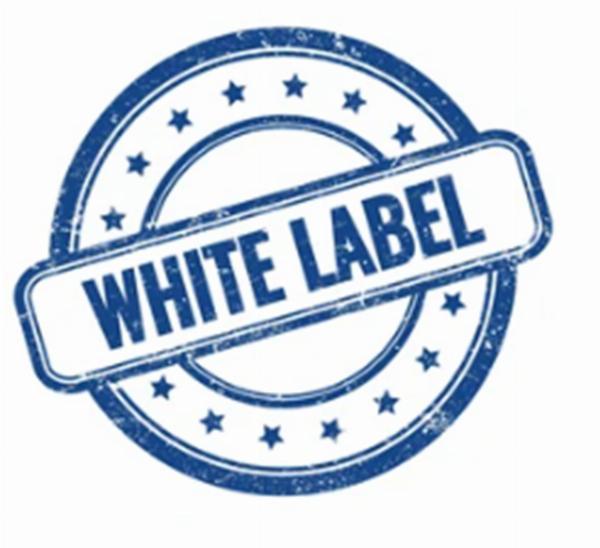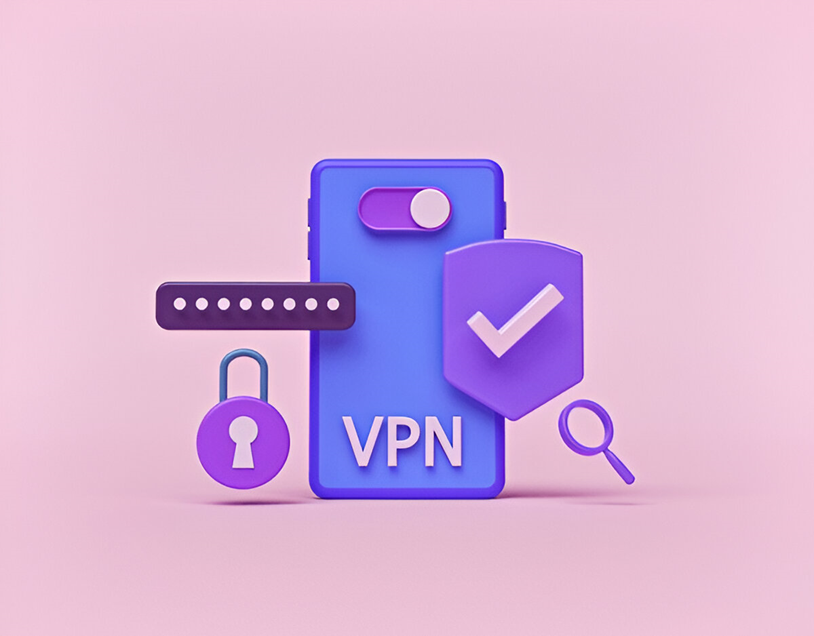What Is a White Label Product and How Does It Work?

Strong 8k brings an ultra-HD IPTV experience to your living room and your pocket.
It's possible that products offered by some of the most well-known corporations in the world are not as uncommon as you might think. The company that actually produces their branded products is an outsider that markets the same things under different labels. White labelling is a well-known commercial strategy that is applied to numerous consumer product categories.
What does white label mean?
The practice of producing goods and marketing them under several brand names is known as "white labelling." Although white label products may differ in terms of branding, packaging, logos, and even prices, but their fundamental architecture remains the same. Limited product customization options, such as adding a brand logo or design on a product's exterior, may be available from white label manufacturers. In exchange for large orders, they might also give retailers discounts. After a purchase, products from other white label services, such print-on-demand businesses, are shipped straight to customers.
What are white label products?
White label products are produced by a different company than the one that markets or even sells them. The benefit is that multiple businesses can handle different aspects of the product development and sales process. Depending on their area of competence and inclination, three firms can concentrate on different aspects of the product: producing, marketing, and selling. The main advantages of white label branding for businesses are the time, energy, and financial savings on production and marketing expenses.
Another significant benefit of private label brands is that if a supermarket has an exclusive agreement with a manufacturer, the company may have cheaper average transportation costs and distributional economies of scale. The shop was able to offer the product for less and still make a larger profit margin due to decreased delivery expenses.
The rise in popularity of private label products indicates that customers are becoming less devoted to their preferred established brands and more price-conscious. The rise of private label brands in several nations is negatively impacting the market share of national brands or manufacturers.
White Label Branding Examples-
1. Electronics Industry:
Electronics manufacturers frequently white label their goods under different brand names. For example, a manufacturer may make tablets or smartphones for businesses that rebrand and sell the products under their own name.
2. Beauty and Personal Care:
The beauty and personal care industries are big on white labelling. A large number of private label cosmetic firms’ contract with other manufacturers to make their goods; these manufacturers create white label products and package them under the private label brands' names.
3. Grocery and Retail:
Frequently found in supermarkets and big-box stores, white label products are produced by outside vendors and marketed under the supermarket's own name. These consumer goods include everything from food products like snacks and canned foods to cleaning supplies and household goods.
4. Payment Processing:
White label payment processing solutions are frequently provided by payment gateway providers. This makes it possible for companies to seamlessly integrate the payment gateway into their operations and provide their clients payment processing services under their own identity.
5. Software:
Numerous web hosting providers provide best white label solutions that can be altered and rebranded by other enterprises. Email marketing platforms offer white-label software alternatives that enable agencies to sell email marketing services under their own brand.
6. Financial Services:
Financial institutions sell financial services and goods to other businesses under a white label. White labeling branded credit cards, prepaid cards, and even banking solutions are examples of this, in which the partner company's branding and client experience are tailored.
7. Web Hosting:
White label hosting is a service that many web hosting providers provide. Because of this, resellers are able to offer web hosting packages under their own brands, with the main web hosting provider handling the setup and maintenance for the web hosting.
A huge number of people have discovered their calling in the web hosting industry, which has grown to be quite large. With over 126 million web hosting companies based there, its valuation is predicted to reach over $83 billion by 2021. White label hosting is a component of that sector. Reseller hosting is directly related to it.
It becomes an affordable option for small businesses to enter the web hosting industry and launch their own web hosting company when paired with white label reseller hosting. In order to help you resale hosting and launch your business, we will go over the steps and information you need to know in this post.
White Label Reseller Hosting: What Is It?
Finding a parent provider to purchase resources from and selling their servers, bandwidth, RAM, and other components are examples of this. You should not handle the technical specifications, server management, or maintenance on your own. It essentially lets you run your own web hosting company without having to deal with all the difficult technical aspects. Many providers also have their own reseller programs because it has become a popular choice among users.
Working of white label reseller hosting?
You need to first find a parent provider and buy a reseller plan in order to receive web hosting services if you want to engage in the white label web hosting industry and operate a reseller hosting website. Once you've selected a parent company, you can launch your hosting company.
With white label web hosting, you want to charge your clients more than you did when you bought the reseller plan and acquired the required resources from your parent provider. By doing this, you avoid having to spend any time or money on your own server setup or other resource purchases.
What does White label Reseller Hosting include?
1. User-Friendly Control Panel
An essential tool for managing websites is a user-friendly control panel. You can make backend changes and, if required, provide the client access via control panel access.
2. Scalable
If your clientele is growing or you're in charge of a website that needs more server power, reseller hosting should allow you to increase server resources.
3. Integrated Billing
WHM billing software, which enables you to bill your clients and oversee their payment schedules, is included in the majority of reseller accounts. Thanks to this, making sure your clients pay you on time is no longer a burden.
4. Integration of Domain and Email
With reseller accounts, you can sell domain names and email account upgrades. These can elevate your services when included in your hosting packages.
5. Private Name Servers
Thanks to private name servers, your brand and the hosting provider whose servers you're using will become more distinct.
Website hosting always remains in demand. White label hosting allows you to give your clients the choice of operating their server without requiring you to handle any of the expensive or challenging aspects of it.
Make sure to conduct thorough research before deciding on the ideal reseller plan for your company. Locate a reputable host that can provide the ideal server environment for you and your clients.
How White Label Solution Is Better?
There are a number of reasons why white label products might be the best option for your company as a business.
1. No risk
There is always some risk involved in starting your own business, but part of that danger can be reduced by white labeling your products. Because you're not spending as much money on creating a new product, risk is reduced.
Therefore, you won't lose as much money if the product doesn't work out in the market as you would if you had started from begin with its development. Select a white label product from a reliable supplier to further reduce your risk.
2. Improved quality assurance
Lastly, you may be confident that white label products will have superior quality control than those that you would make yourself. This is because, compared to you, the white label manufacturer is probably going to have a stronger quality control procedure.
Furthermore, since the white label manufacturer probably produces labels for other businesses, it usually has a group of quality control specialists on staff who can guarantee that the product fulfils your requirements.
3. Quicker to launch
White label products are also preferred since it can be considerably quicker to bring a product to market with them than it is to design one from the ground up. Once more, this is because you're just rebranding an already-existing product—the production process isn't being started from scratch. Hence, white labelling can be a fantastic choice if you want to launch a product rapidly.
The time to market is the largest advantage of white labelling. It can take months, or even years, to develop a product from scratch, find a manufacturer, and bring it to market. White labelling allows you to expedite that procedure and get your goods onto the market much faster.
4. More adaptability
Additionally, white label products provide more freedom than creating your own product. For instance, you still have control over the product's logo, packaging, and marketing if you white label it.
This implies that you can design a special product for your brand and customize it to your target market. Furthermore, even if you have less control over the production process, you still have a great deal of influence on how your customers are shown the goods.
5. Affordable
White label products are popular because they are an affordable means of launching a business. Best White labelling can be a big benefit, especially for small businesses, as it eliminates the upfront expenditures associated with product development, production, and marketing.
The largest financial benefit of white labelling, is that there are no expenses associated with product development or marketing. Rather, you're simply capitalizing on the success of another company's product, allowing you to launch your firm with less overhead and more swiftly."
6. Lower requirements for minimum orders
also typically have lower minimum order quantities than if you were to produce the product yourself. This is so that the white label manufacturer won't have to start a new production line just to fill your little request because they already have the product in stock.
Therefore, white label products can be a terrific choice if you're just getting started and don't need many products.
Conclusion-
White label products are produced by a same business, then packaged and marketed by other businesses under different brand names. It has been profitable for big-box stores to provide white label products with their own branding.
Since the late 1990s, private label branding has become a global phenomenon that has grown gradually. White label branding offers businesses a number of advantages, including reduced production and marketing expenses, time, and energy expenditures.
Note: IndiBlogHub features both user-submitted and editorial content. We do not verify third-party contributions. Read our Disclaimer and Privacy Policyfor details.







